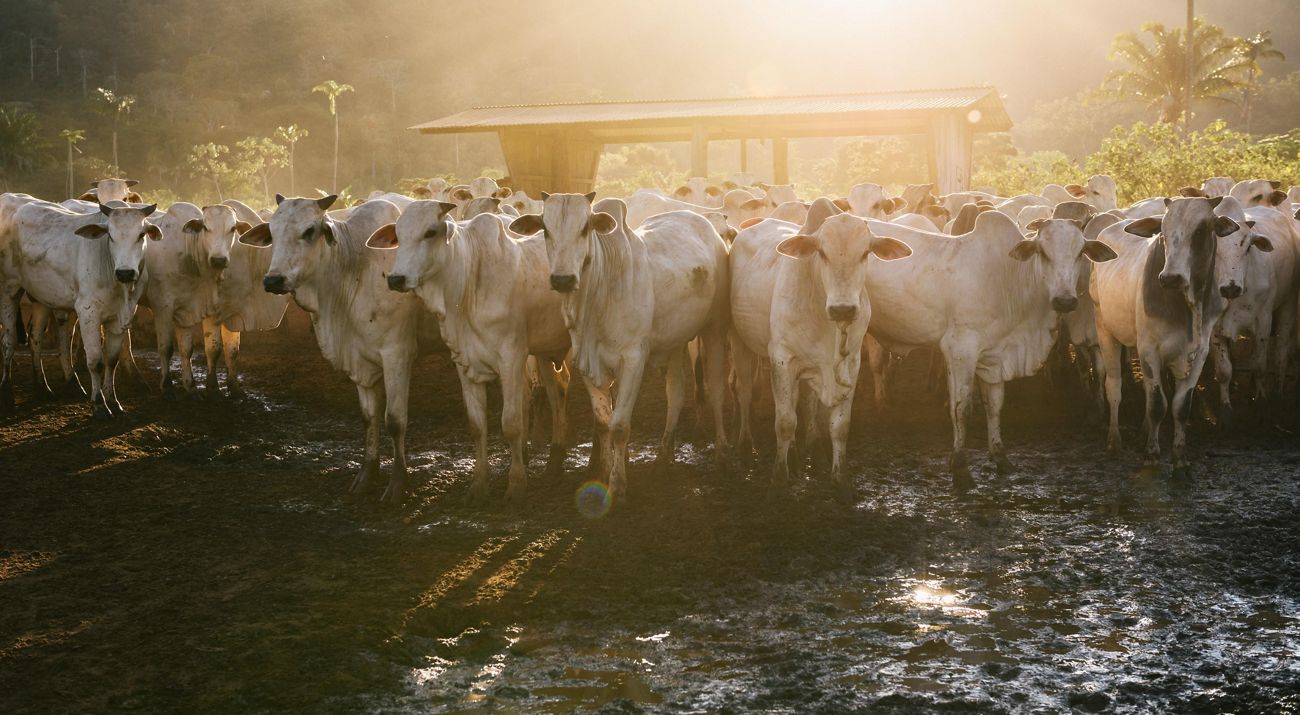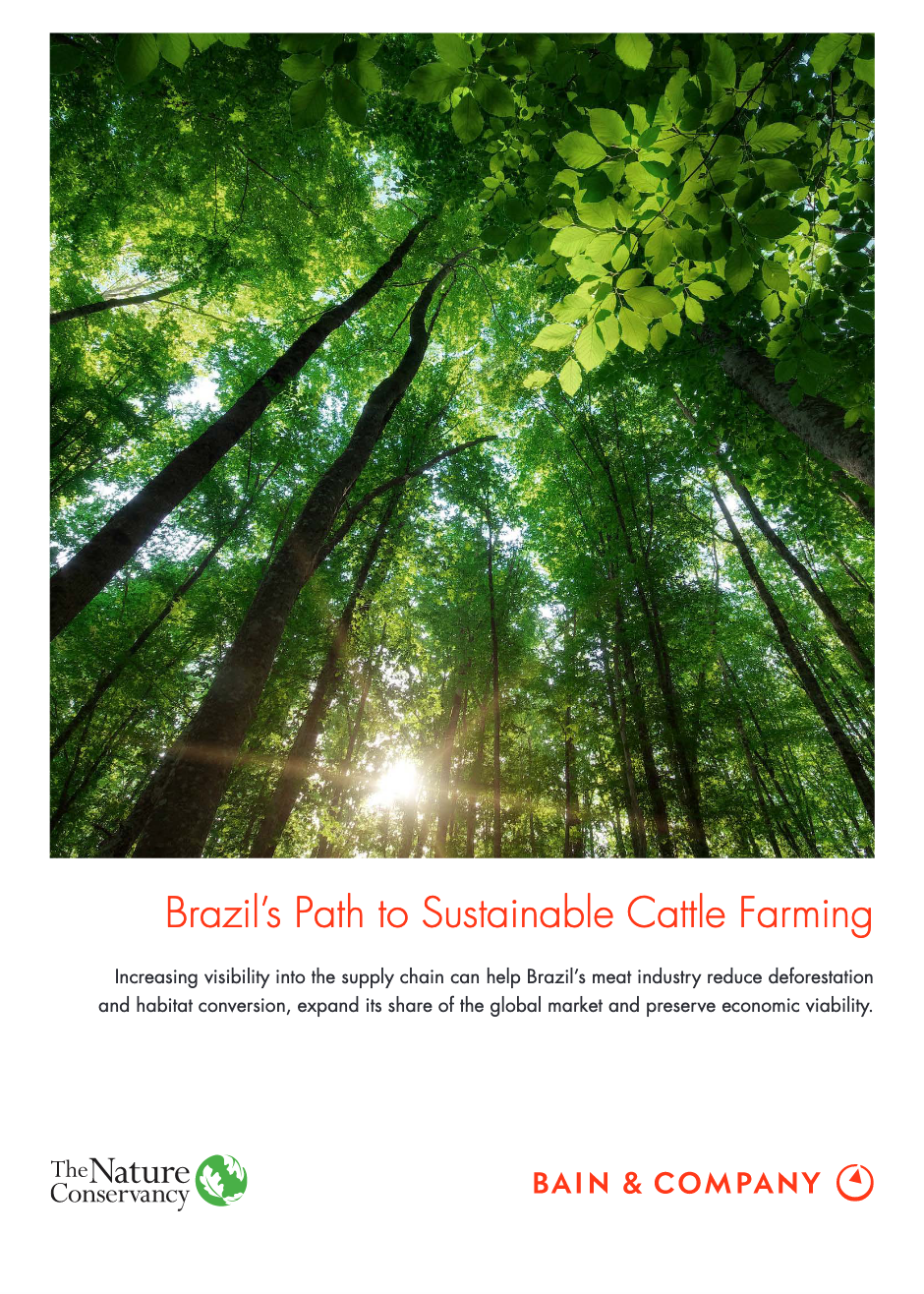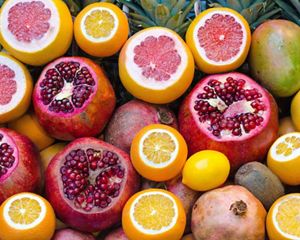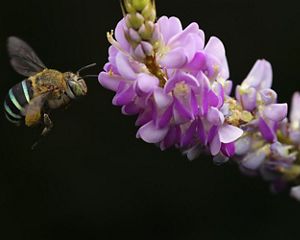Brazil’s Path to Sustainable Cattle Farming
The new study by TNC and Bain & Company that analyzes how Brazil's beef and leather industry can work to tackle deforestation.
Read the document
DownloadThe new insights briefing published by Bain & Company and co-authored by The Nature Conservancy which explains why it makes business sense for slaughterhouses, producers, beef buyers, leather brands, and investors to embrace a production model free of deforestation and conversion of natural habitat (“DCF”).
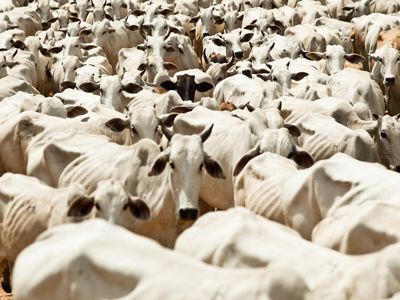
Among the key findings of this study is that higher risk premiums from deforestation and conversion could reduce Brazilian slaughterhouses’ equity valuations by up to 30%, demonstrating that a DCF production model is not only technically feasible—as a result of recent advances in monitoring technology—but will also create greater value for the cattle sector compared with the approach of forest clearing and its associated risks.
Quote
Even as global population growth and broader income distribution create new opportunities for Brazil’s meat industry, changes in consumer preferences, investors’ demands for accountability, and a greater focus on food security imp
The main candidates to lead this effort are Brazil’s three largest meat-packers, which together account for around 35% of the country’s beef production and about 85% of beef exports. Of course, this enormous effort must have the committed support of other stakeholders, including government, retailers, restaurants, investors, lenders, the leather industry and consumers. Only through a coordinated effort of the key players in the value chain can Brazil’s meat industry ensure deforestation-free production and continue to grow as a global leader in beef exports.
